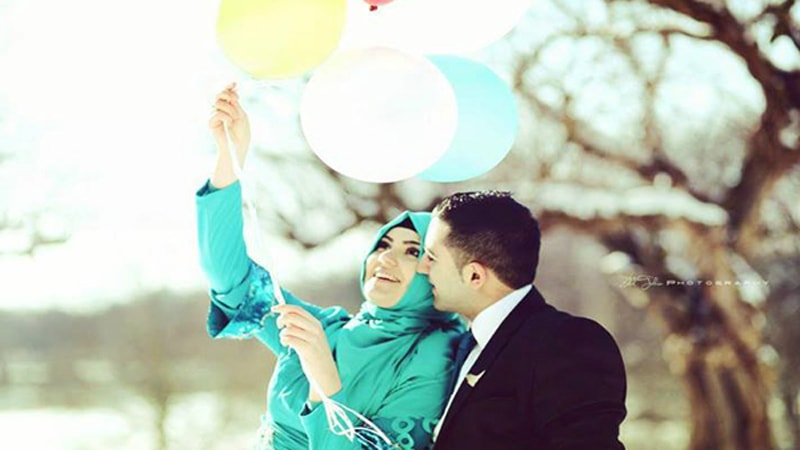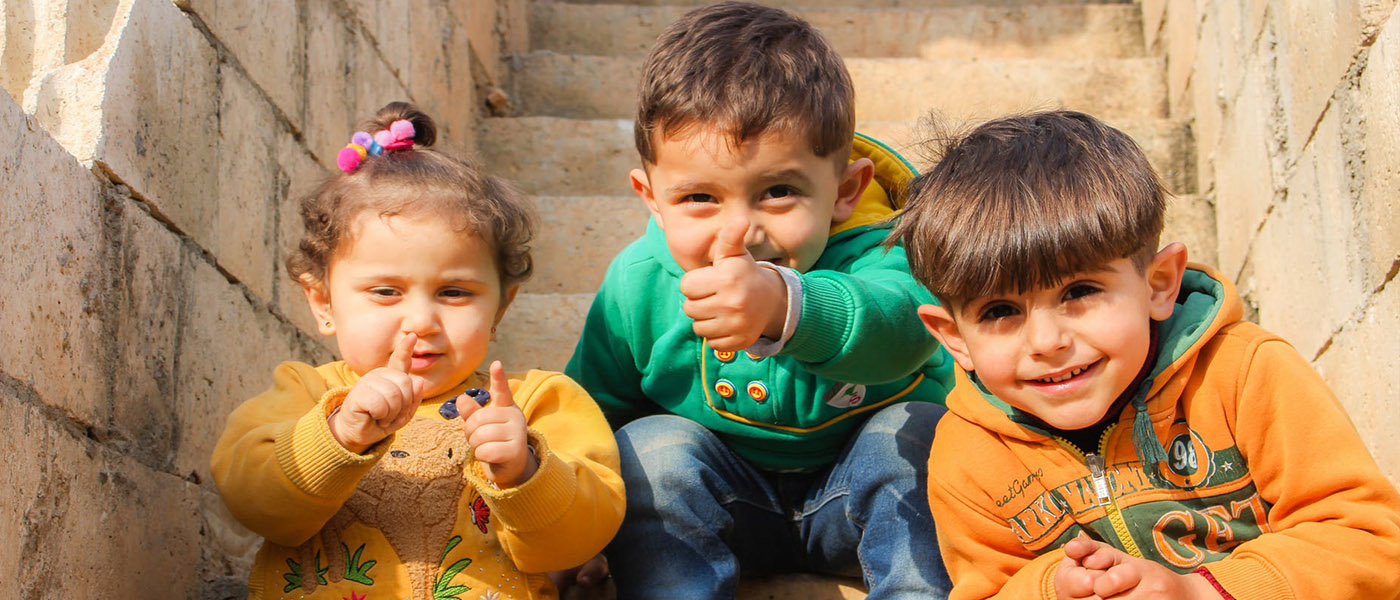

The Importance of Marriage in Islam
“Allah made for you mates from your own selves and appointed for you children and grandchildren from your mates, and We provided you with all the good things. What, do they believe in falsehood while they deny the blessing of Allah?” (16:72)
If you are married, you might have experienced how a successful marriage plays an important part in our lives. Marriage in Islam is the cornerstone of the family and the only relationship that effectively prepares us for the community; so, if it is thought upon carefully and wisely, it will result in the well-being of the society as well as each individual.
Unlike some religious denominations that encourage celibacy as a means of salvation and great virtue, there is no monasticism in Islam [1]. Prophet Muhammad (PBUH&HP) says in this regard: “Marriage is my way (Sunnah), Whoever turns away from it is not ‘among my followers’” [2].
With regard to marriage in Islam, he has also stated: “There is no better structure founded in Islam other than marriage” [3].

The Purpose of Marriage in Islam
According to a narration from Prophet Muhammad (PBUH&HP), marriage in Islam is considered as half of a Muslim’s religion:
“One who marries has already fulfilled half of his religion, therefore he should fear Allah for the other half” [4].
What do you think the reason is? What are the important benefits to which marriage is linked?
Looking into it from different aspects, one might find various reasons for getting married, like money, popularity, religion, beauty, etc. But the religion of Islam focuses on the more spiritual aspect of this holy covenant, i.e., peace, security, and affection:
“And of His signs (God’s signs) is that He created for you mates from your own selves that you may take comfort in them, and He ordained affection and mercy between you. There are indeed signs in that for a people who reflect” (30:21).
The other aspects that make marriage in Islam a necessity in humans’ life are as follows:
Emotional Needs:
As mentioned in the verse of Quran above, marriage in Islam, in the most suitable way, is the source of emotional comfort to us. Quran also says:
“It is He (God) who created you from a single soul, and made from it its mate, that he might find comfort with her” (7:189).
When you get married, the first thing you promise your spouse is to care for her/him, to meet his/her emotional needs. That is what makes you fall in love with your life companion and lets the two of you experience love, affection, mutual understanding, peace of mind, and happiness.
Regarding this matter, Imam Sadiq (AS) has said:
“Whenever a man’s love for his wife increases, his faith increases in quality” [5].
Physical Needs (sexual desire):
Humans naturally possess a sexual instinct which is a significant and strong desire. Everyone feels the urge to have a partner for fulfilling their sexual needs in a safe and serene environment, which will help them grow and reach high levels of perfection and satisfaction.
Abstaining from marriage often results in physical and mental disorders. Doctors from Georgia State University in a study published in 2001 found that those who choose to be celibate are frequently afflicted with feelings of anger, frustration, self-doubt and even depression [6].
The religion of Islam not only recognizes the sexual needs of human but also strongly recommends marriage as the only legal way of fulfilling this desire.
The Social Needs:
Human beings are social creatures, who like all other beings, have urges which lead to starting a family of their own and reproduction. In this regard, Quran says:
“The originator of the heavens and the earth, He made for you mates from your own selves, and mates of the cattle, by which means He multiplies you…” (42:11).
Based on this verse, Children are the results of marriage in Islam that make the procreation of humankind continue. They also play an important role in stabilizing the family foundations. Islam gives a great deal of emphasis to both marriage and bringing up faithful and virtuous children since they are considered as building blocks of a healthy society.
Apart from that, marriage shields the whole society as well as every single individual from lots of evil deeds. It has been narrated from Prophet Muhammad that, when a person gets married at a young age, Satan will become angry since she/he has guarded two-third of his/her religion against him [7]. Married people are less involved in socially destructive acts like any extramarital affairs.

Self-purification
From the Islamic perspective, marriage is not merely a means of legalizing sexual relations. In fact, it unites the existence of the man and woman as a couple, brings them together and makes them complementary to each other.
The peaceful and secure environment that the husband and wife live in is the best place to practice self-control, selflessness, and self-purification. Pious couples always invite one another to goodness. They are also a source of encouragement in preventing each other from committing sins and performing the obligatory acts of worship, which eventually makes them have a respectable and honest life forever.
It has been narrated that once the Prophet (PBUH&HP) went to Imam Ali (AS)’s and Lady Fatimah (AS)’s house after their wedding. He asked Imam Ali (AS) how he found his spouse. Imam replied: “I found Zahra (AS) as the best help in worshipping the Almighty Allah.” The Prophet (PBUH&HP) then asked Fatimah al-Zahra (AS) the same question, and she replied: “He is the best husband” [7].
We learn from this narration that one of the main purposes of marriage is actually what Imam Ali (AS) has mentioned, i.e., serving Allah. When a man and a woman get married, the two become one. The bond between them mirrors the unconditional love between The Creator and us, and this is the ultimate experience a true believer always seeks to have.
References:
- Al-Qadi al-Nu'man, Daim al-Islam, v. 2, p. 193, h. 701
- Bihar al-Anwar, v. 103, p 220.
- Wasa 'il al Shiah, vol 14, p 3.
- Wasa’il ul-Shi’a, Vol. 14, p 5.
- Wasa’il, vol 20. p 24, H 24931.
- Navader (Ravandi), p 12.
- Bihar al-Anwar, vol 43, p 117.
Share This Article

Be Kind to Children
A wealthy man went to Prophet Muhammad's (PBUH&HP) home to visit him. While they were speaking, the Holy Prophet (PBUH&HP) sat his grandchild, Hussain (AS) on his lap and started kissing him. The man was looking at the Prophet’s behavior toward the child in wonder. He said sadly “I have some children, but I have never kissed them.”
The Holy Prophet (PBUH&HP) became upset and said, “What should I do when Allah has removed mercy from your heart”.
This short story explicitly reveals Islam’s emphasis on respectful and kind behavior toward children as the builders of society’s future. This short piece of writing is going to talk about kindness to children.
We are the ones who draw the picture of our children’s lives; it is our choice to draw a beautiful or an ugly one. A child, who lives in an integrated, peaceful, and kind family, undoubtedly enjoys a more lively spirit than his other peers who do not have the opportunity to live in such families.
Psychoanalytically speaking, you might have heard a lot about the role of kindness in upbringing children, as well as its impact on their future. Now let's take a look at what Islamic leaders have said about this issue.
How can be kind to children?
If you have a child or know a child around you, you might find this saying of Imam Sadiq (AS) with regard to children interesting: “Love your children and be kind to them, and if you promise them, keep your promise, for they know nobody but you as their providers”. Imam Sadiq (AS), besides emphasizing kindness toward children, draws our attention to the importance of keeping our promise to children. As children, with their pure nature, are not yet aware of the concept of breaking promises, if the older ones commit this act, they will learn from them and copy their behavior. As a result, imitating this wrong deed will have damaging effects on the child’s spirit.
In another quote from Imam Sadiq (AS), he said: “The one who kisses his child, Allah will give him a reward in the hereafter, and the one who makes his child happy, Allah will make him happy in the resurrection day”. He also said: “Kiss your children a lot because each kiss will raise your statues in front of God”.
There are a lot of narrations and traditions about kind behavior toward children in reliable Islamic sources. In the end, it is noteworthy that the Holy Prophet (PBUH&HP) has emphasized a lot on playing with children in a very childish way as if you are a child yourself; this point of view is a modern psychological approach which our Prophet (PBUH&HP) mentioned 1400 years ago.
The holy prophet Muhammad (PBUH&HP) said: “be close and friendly to your children and hug them”.
Read More

Is Family Planning Allowed in Islam?
Family planning in Islam is one of the recent issues that includes its own rules and regulations. The issue of family planning is usually observed from two dimensions; population control which is the political aspect, and birth control which is based on the decision of the family (husband and wife).
The political aspects differ from country to country, based on the decisions made by the government of each region. Depending on social and political conditions, the government may encourage people to have more children or to limit their family to one or two children. However, this aspect is not the issue in this article; rather we would focus on the Islamic view about family planning and birth control, based on the couples’ decisions.
At the same time that many traditional families or the older adults in families encourage young couples to have more children, we keep hearing from some young couples that it is not logical to have many children in this era for different social reasons.
Why is it not logical to have many children?
The issue of family planning became significant when the lifestyle of people changed. After the modernization of the world and changing the lifestyle from rural life to urban lifestyle, everything was affected.
Children who used to be a workforce in rural lifestyle became sole consumers in the urban family for many years, until they became independent. Therefore, parents needed to have reasonable plans to provide for their children who were to be consumers for years.
Based on their situations and goals, and their experiences from their childhood, people have different reasons for having fewer children. Reasons like:
We cannot afford the cost of living for more than one or two children.
We have to work hard, and we cannot spend enough time to raise and treat children.
There is not enough wealth on the earth for future generations.
Children may be an obstacle on our way to success and may deprive us of reaching our goals.
This world has become a cruel place, and it is not fair to bring any more humans to this brutal world.
And many other reasons that convince some couples not to have children, or have only one or two kids.
Now, let’s see what the Islamic viewpoint is about human reproduction and birth control.
Family Planning in Islam: Quran and Narrations
There are no specific verses in the Holy Quran to cover the issue of family planning in Islam. However, there are a few verses that some jurists use to justify their agreement or disagreement with the issue of family planning in Islam. For example: “Do not kill your children for fear of penury: We will provide for them and for you. Killing them is indeed a great iniquity.” (17:31)
The above verse not only shows that the issue of providing for children has always been an issue for parents, but it also shows how God understands human beings, and how beautiful He tries to assure them that the aliment of every creature is provided by Him. These are the things that we usually forget. We forget that it is Him who has been nurturing us from the very beginning. So being worried about other creatures’ aliment is not a good reason to prevent us from having children.
Another point in considering family planning in Islam is that it's not correct to have fewer children, fearing from poverty and being unable to afford for their costs as “There is no animal on the earth, but that its sustenance lies with Allah, and He knows its [enduring] abode and its temporary place of lodging. ….” (11:6)
Besides, having children is such a sweet blessing from God that he warns us not to get so much engaged with these gifts, in a way that they distract us from remembering God and our mission of life: “O you who have faith! Do not let your possessions and children distract you from the remembrance of Allah, and whoever does that—it is they who are the losers.” (63:9)
Prophet Muhammad (PBUH&HP) encouraged people to have more children so that the earth would be filled by people who glorify God and praise him day and night. Also, it is narrated from Prophet Muhammad (PBUH&HP) that “I would be proud of the number of my companions on the day of resurrection” [1].
Reading the above verses and narration may encourage anyone to step forward to have too many children. But is that correct to do so? Are there any prohibitions against having children?
Is It Obligatory to Have too Many Children?
Although many narrations encourage people to have more children, there is no obligation in doing so. Instead, it is recommended to have many children, provided that it does no physical, mental or spiritual harm to parents or children. In narrations, it is recommended to have enough children, not as many as possible [2].
We should also keep in mind this phrase from the Holy Quran “Allah does not task any soul beyond its capacity” (2:286). This means that the number of children should be as many as they do not cause any harm to parents, while at the same time parents would provide all their juridical, legal, spiritual, cultural and educative rights.
When Is Birth Control Allowed?
Having mentioned the above overall issues about family planning, let’s see when it is specifically allowed to avoid having children.
In Islamic jurisprudence, it is allowed to avoid having children if:
The husband may decide not to have any children if:
The woman is old.
The woman would not breastfeed the baby.
The woman is not able to nurture a good child.
The woman is in temporary marriage.
The woman is indecent.
It is physically harmful to the woman to give birth.
But if a woman has none of the above issues, and the man does not wish to have children from her, for any other reasons, then he should refer to his source of emulation (Marja’ taqlid), since different Muslim jurists have different opinions on this matter. The agreement of both parties upon having or not having children can solve the problem.
But if they do not agree, the woman has the right to request for a divorce, hoping to marry another man with whom she can have children, keeping in mind that divorce is the most hateful allowed (Halal) act in the eyes of God Almighty [3].
But if the husband wants children, and the wife does not want to have one, without having any specific physical problems, then either both couples should come to an agreement on this subject of having or not having children, for a specific amount of time or forever, or the woman should permit the man to have children with another woman (through temporary or permanent marriage) [4].
However, it should be noticed that if the woman does not obey her husband in this case or any other circumstances, she has committed a forbidden (Haram) act, since it is obligatory for a woman to obey her husband. And if they do not come to an agreement and the man wants to have children, they may go through a divorce. (Again keeping in mind that divorce is the most hateful allowed (Halal) act in the eyes of God Almighty) [5].
In conclusion, although it is recommended to have many children, family planning in Islam, considering the situation of parents in different times and places, is a rational act and is allowed.
Also, couples should not avoid having children for fear of their aliment. Since God has guaranteed the aliment of every single creature on earth; rather they should improve their spiritual level so that they can be great parents and capable of nurturing good children who are to become great believers and good servants of the religion of God.
References:
- Jami’ al-ahadith, vol. 20, p. 58
- Bihar al-anvar, vol. 72, p. 58
- Sayed Ali Khamenei, Istifta
- ibid
- ibid
Read More

